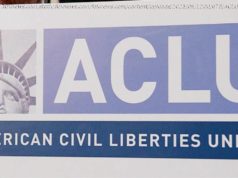The Florida Panhandle is dotted with small, rural communities, some of them among the poorest in the state. Evacuation was difficult for many there.
PANACEA, Fla. — The orders came down to mobile home residents as the menace of Hurricane Michael approached in the Gulf of Mexico: Get out. Get out now.
The evacuation mandate reached Gene Bearden, 76, in this blink-and-you-miss-it town with an aspirational name south of Tallahassee and in an area where a storm surge of up to 13 feet had been forecast.
Mr. Bearden wanted to leave. He had been wanting to leave Panacea, in fact, for four years, but had not mustered the financial wherewithal to do it, and the arrival of a Category 4 hurricane did nothing to change that.
Versions of his story played out across the eastern edge of the Florida Panhandle, home to modest coastal communities where people already hard on their luck had little means to escape the storm’s wrath.
Mr. Bearden had not planned to stay in Panacea when he visited his aunt in 2014. But when he tried to renew his driver’s license, he ran into a problem with his birth certificate, which he couldn’t fix unless he went to Atlanta — he was born in Georgia. He couldn’t make it there. So he stayed, without a license, in an RV park here.
“I got stuck,” he said.
[ Follow live updates on the aftermath of Hurricane Michael and its progress through the Carolinas]
With the storm looming this week, sheriff’s deputies showed up on Wednesday to get residents out. Mr. Bearden explained why he could not just drive away. A kind deputy found a solution, Mr. Bearden said: He wrote him a letter authorizing him to drive, with no license and no current vehicle registration, to a place far enough north to be safe. Mr. Bearden packed up a white pickup and drove — but only to the next town, Medart, where he rode out the storm inside his parked truck.
“It wasn’t fun,” he said on Thursday, back at the RV camp, now almost entirely empty. “Everybody left. They had to.”
The water lunged into Panacea, turning roads into canals before the sea’s surge receded in the wee hours Thursday. Neighbor after neighbor described how high the water had come: to their knees, their waist, their chest, higher than most anyone had seen it before. By Thursday morning, the streets were glistening with black mud. They stank of standing seawater.
Still, residents felt lucky that Michael spared them the worst of the destruction.
“It was not as bad as it could’ve been,” said Jack Cattledge, 71.
During the storm, he took in his friend, Tony Young, another RV camp resident, and Mr. Young’s girlfriend. By Thursday, they were back at the camp, Mr. Cattledge smoking a cigarette as Mr. Young, 73, raked leaves and swept muck to tidy his camp space. Both men said they were military veterans.
“I’m still going to lose about 1,000 bucks,” Mr. Cattledge said of the damage done to the underside of his camper. “And another $300-$500 worth of groceries.”
His freezer was full of hamburger patties and sausages and frozen pizzas. He was determined to salvage something — anything — for later, but for now he was too afraid to open the icebox and count his losses.
A few miles south, at the Holiday Campground on Ochlockonee Bay, the pier was wiped out, a portion of it blown half a football field away. Only part of a swing set remained, though the remaining campers, most of them vacant, had apparently not flooded.
Elsewhere in town, people who were better off tried to recover. Jodi Connett, 37, and her friend, Kathy Weir, 57, rode a golf cart to Ms. Connett’s boyfriend’s house, where they lifted a pile of sandbags and surveyed the soggy damage. At Posey’s restaurant, Sherrie Miller already had a crew dealing with a huge fallen tree and was working on getting the water out.
At Gulf Specimen Marine Lab and Aquarium, a local favorite for children and school field trips, Cypress Rudloe, the executive director, took his muddy waders and stepped barefoot into a tank. He grabbed a net and enlisted friends to move a stingray, a cobia, an amberjack and a grouper into a tank rigged to a generator, so the fish would not die in still water.
“I haven’t even been home yet,” he said, noting he had been up all night with a friend, moving supplies along the town’s streets on a boat.
For Mr. Bearden, who served in Vietnam, the situation was more acute. His refrigerator full of food had already spoiled, he said. He had some water. But everything nearby was closed.
Meanwhile, he said, he is fighting a recurrence of prostate cancer. He lives on Social Security.
He moved a tree limb that had blocked the door to his camper. The water got into the back, leaving such a wreck that he didn’t want to let outsiders in to see it.
“It’s too messed up,” he said.
So he sat on a wooden picnic bench outside, next to a grill and plastic crates from Dollar General, lit a cigarette and looked around.
“There ain’t no high point around here,” he said.






